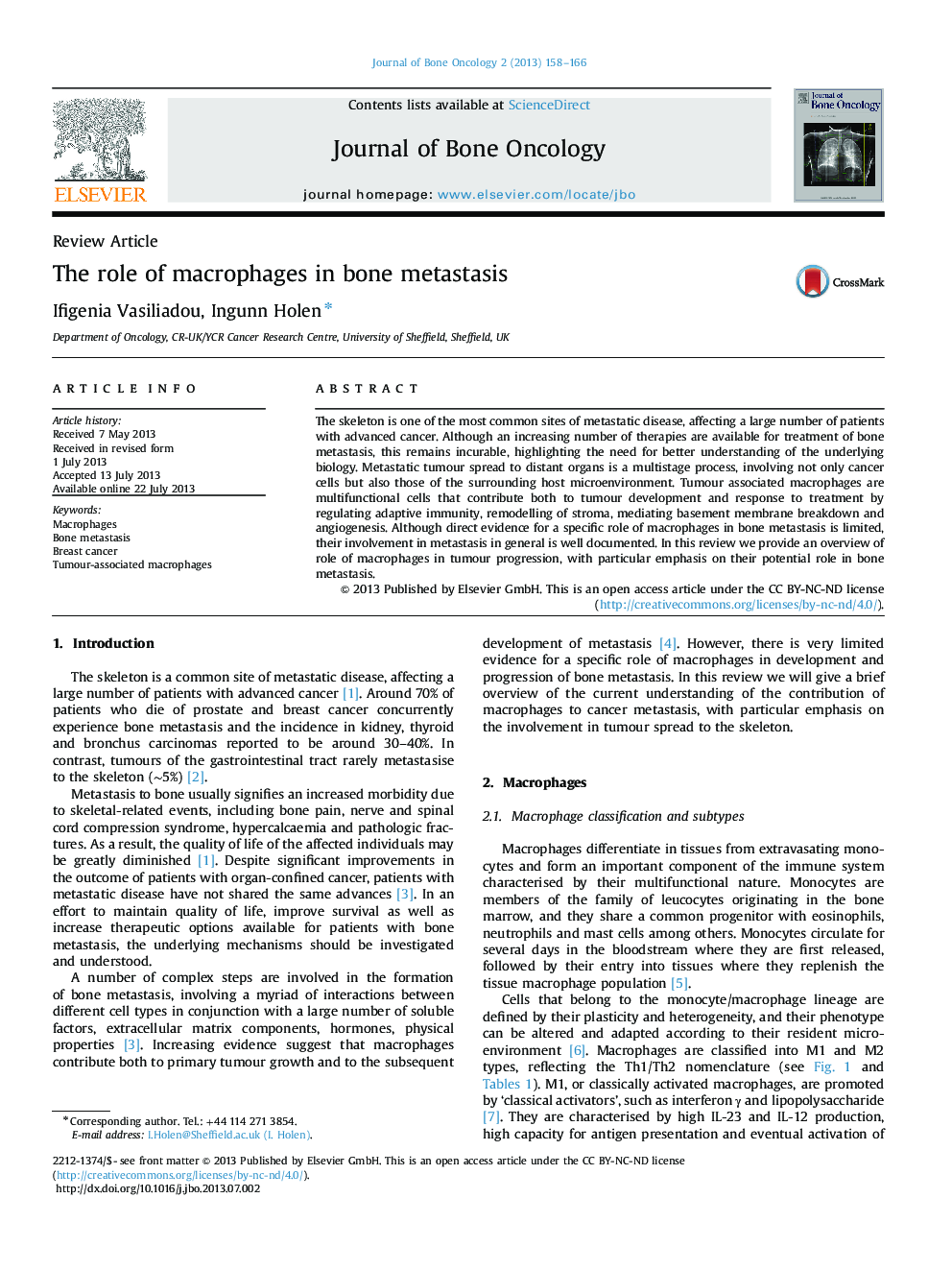| Article ID | Journal | Published Year | Pages | File Type |
|---|---|---|---|---|
| 2136232 | Journal of Bone Oncology | 2013 | 9 Pages |
The skeleton is one of the most common sites of metastatic disease, affecting a large number of patients with advanced cancer. Although an increasing number of therapies are available for treatment of bone metastasis, this remains incurable, highlighting the need for better understanding of the underlying biology. Metastatic tumour spread to distant organs is a multistage process, involving not only cancer cells but also those of the surrounding host microenvironment. Tumour associated macrophages are multifunctional cells that contribute both to tumour development and response to treatment by regulating adaptive immunity, remodelling of stroma, mediating basement membrane breakdown and angiogenesis. Although direct evidence for a specific role of macrophages in bone metastasis is limited, their involvement in metastasis in general is well documented. In this review we provide an overview of role of macrophages in tumour progression, with particular emphasis on their potential role in bone metastasis.
